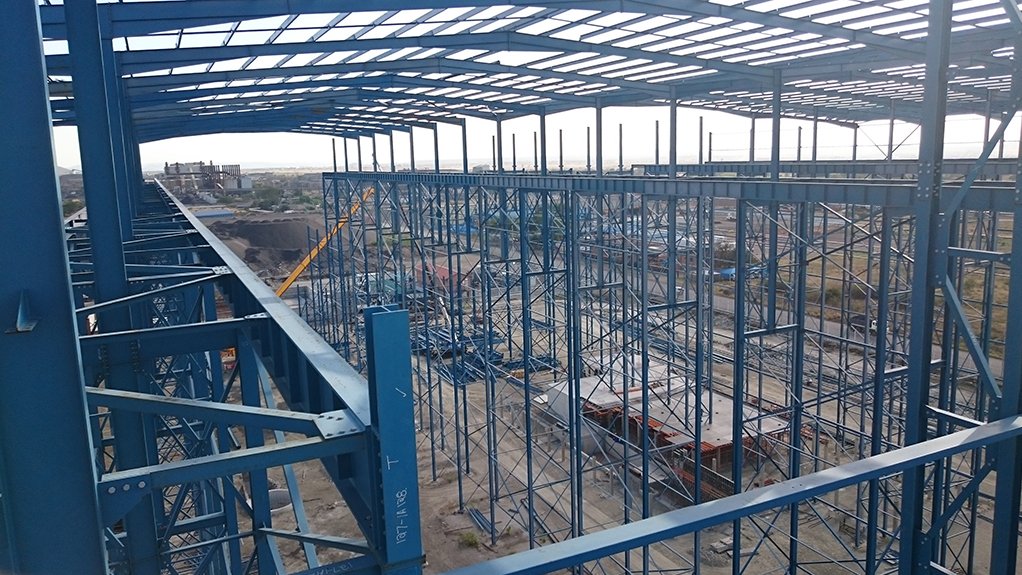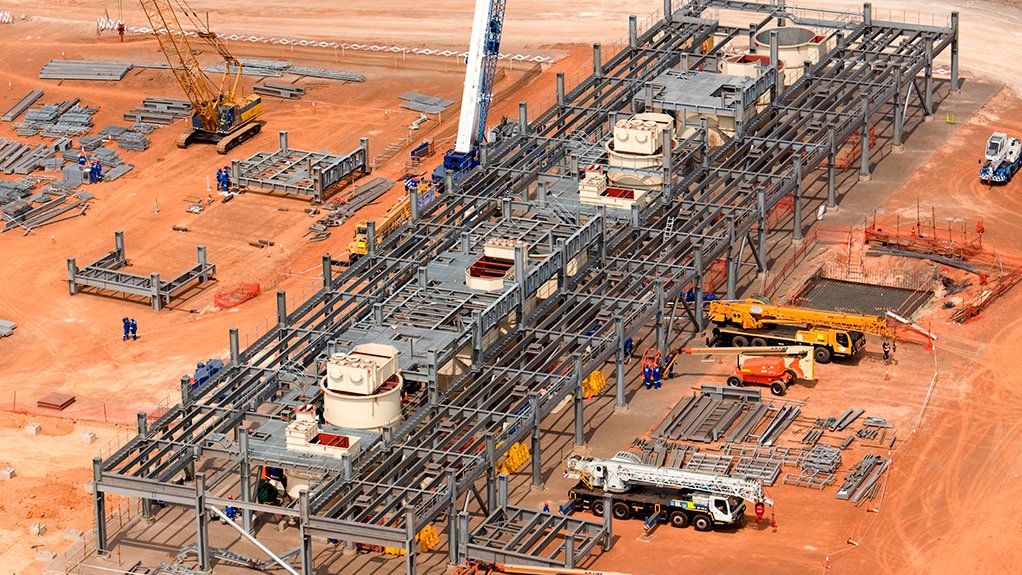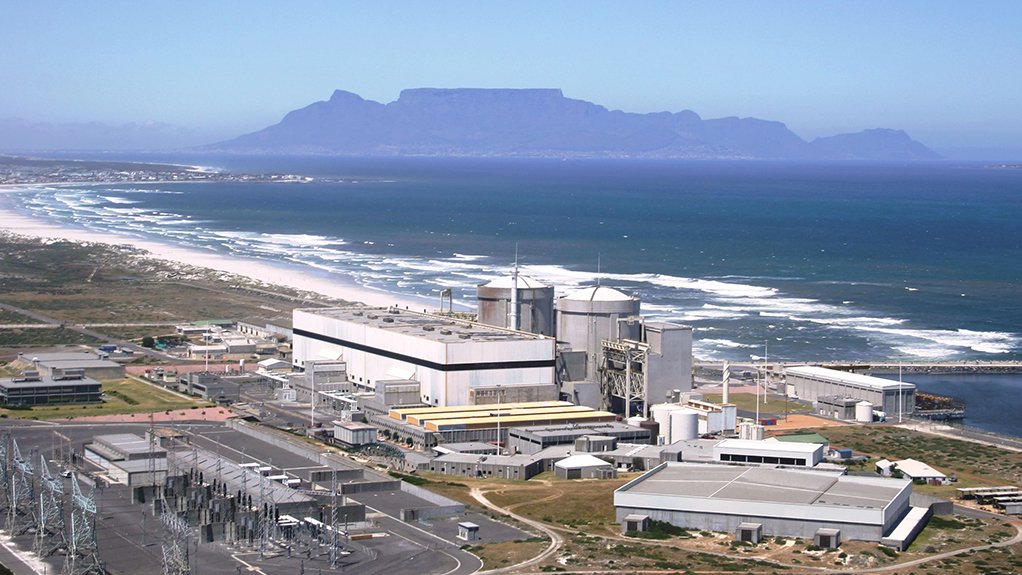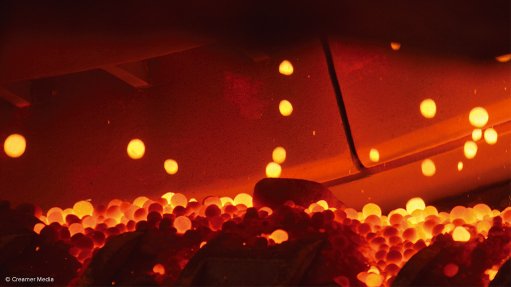Opportunities arise for local steel industry




ADAPTING As a result of industry challenges, the ISF has narrowed its global export focus to private-sector-funded projects throughout Africa, as well as Australia
KEEPING WATCH The ISF ensures that sufficient supply of primary product is available as required from its participating mill and merchant members to ensure that local suppliers use arising opportunities
STEPPING UP The local steel industry will be well advised to obtain the necessary skills and certifications to embark on relevant opportunities as they arise
The demand for South African value-added steel products in mining projects across Africa and Australia has increased amid poor service delivery and high transport costs from China, as well as rising political tension between China and Australia.
As a result, Australia-based mine owners are sourcing new suppliers and creating opportunities for local suppliers to meet this demand as well as demand from Africa, says export trade promotion agency International Steel Fabricators (ISF) CEO Neels van Niekerk.
He tells Engineering News that demand for locally-produced steel structures is expected to surge before the end of the year.
“Local suppliers need to bring their offering to the attention of the identified potential clients wherever they are situated to access these opportunities,” enthuses Van Niekerk.
To ensure local suppliers are able to use these opportunities, the ISF ensures that sufficient supply of primary products is available by collaborating with its participating mill and merchant members.
Moreover, the global emphasis on hydrogen energy also affords future opportunities for local steel suppliers.
Van Niekerk explains that South Africa and Namibia have been listed as potential major suppliers of hydrogen to Europe, which was apparent at last year’s Abu Dhabi International Petroleum Exhibition and Conference.
Therefore, the local steel industry will be well advised to closely monitor developments on this front and obtain the necessary skills and certifications to embark on relevant opportunities as they arise.
However, owing to the high costs associated with tracking developments and developing competencies in the hydrogen industry, he adds that opportunities will not automatically be available for most individual steel-intensive downstream Southern Africa companies.
Hence, the ISF is interacting with other local industry associations to explore possible sources of funding to jointly track these developments and develop competencies for the benefit of members.
“Opportunities also arise amid the emergence of other energy projects, including for oil and gas, nuclear as well as thermal coal. Nuclear and gas have recently been re-classified as green and are, therefore, now in the same category as hydrogen,” adds Van Niekerk.
To further assist, the ISF is developing its website to enable members and clients, locally and abroad, to access mill and merchant-member standard primary and intermediary stock availability information.
This also enables clients abroad to avoid supply delays and costly substitutions while reducing scrap.
An ISF short-term priority is to load all merchant member information and product access points onto the website.
“We have already received numerous requests from all over South Africa and beyond for the sourcing of products listed. Merchant members are now able to load the details of their service offerings while being part of an interactive map, which should reduce the need to interact with the ISF Secretariat,” says Van Niekerk.
Challenges
While there are opportunities to help increase access to demand for the local steel sector, the ISF has had to “tighten its belt” as a result of industry challenges.
Van Niekerk notes that, in addition to some of its members having closed down or been liquidated, challenges have further been coupled with a lack of inflationary adjustments from its institutional member base.
The ISF has, thus, narrowed its global export focus to private-sector-funded projects throughout Africa, as well as Australia, and now focuses only on projects where the design is based on primary structural sections that evolved from historical British standards.
“Our members are typically not seen as competitive on a world best-price-per-tonne-only bidding adjudication basis. They typically need to achieve a price premium over our Far and Middle Eastern competitors by their on-time, quality, flexible and expert services, and by going well beyond just supplying bulk products according to firm-submitted drawings.”
Currently, the outlook for the local steel industry remains negative, with projected crude steel production reaching about half of previous peak historical performances, adds Van Niekerk.
Local demand for steel is expected to increase only when the local economic growth rate increases above 2.5% and he urges local suppliers to serve export markets to grow in the short to medium term.
However, this will require ISF members to increase international marketing initiatives, which could be costly, warns Van Niekerk.
Further, the ISF is involved in a sub-sector of the local steel industry and mainly supports exports of the steel construction and capital equipment industries.
The organisation aims to increase export volumes of value-added steel structures, mine processing and pressure equipment from its Southern Africa members and to grow the number of exporters joining the ISF’s endeavours.
“With only a few exceptions in the pressure equipment industry, our members typically only fabricate and manufacture value-added products as designed by our client base. This is a requirement because product and project design are seen as exclusive intellectual property by the bulk of our client base.
“Owing to the support of the main local mill, merchant members and the Department of Trade, Industry and Competition, the ISF is able to expertly service its member base in the value-added steel export markets,” concludes Van Niekerk.
Article Enquiry
Email Article
Save Article
Feedback
To advertise email advertising@creamermedia.co.za or click here
Press Office
Announcements
What's On
Subscribe to improve your user experience...
Option 1 (equivalent of R125 a month):
Receive a weekly copy of Creamer Media's Engineering News & Mining Weekly magazine
(print copy for those in South Africa and e-magazine for those outside of South Africa)
Receive daily email newsletters
Access to full search results
Access archive of magazine back copies
Access to Projects in Progress
Access to ONE Research Report of your choice in PDF format
Option 2 (equivalent of R375 a month):
All benefits from Option 1
PLUS
Access to Creamer Media's Research Channel Africa for ALL Research Reports, in PDF format, on various industrial and mining sectors
including Electricity; Water; Energy Transition; Hydrogen; Roads, Rail and Ports; Coal; Gold; Platinum; Battery Metals; etc.
Already a subscriber?
Forgotten your password?
Receive weekly copy of Creamer Media's Engineering News & Mining Weekly magazine (print copy for those in South Africa and e-magazine for those outside of South Africa)
➕
Recieve daily email newsletters
➕
Access to full search results
➕
Access archive of magazine back copies
➕
Access to Projects in Progress
➕
Access to ONE Research Report of your choice in PDF format
RESEARCH CHANNEL AFRICA
R4500 (equivalent of R375 a month)
SUBSCRIBEAll benefits from Option 1
➕
Access to Creamer Media's Research Channel Africa for ALL Research Reports on various industrial and mining sectors, in PDF format, including on:
Electricity
➕
Water
➕
Energy Transition
➕
Hydrogen
➕
Roads, Rail and Ports
➕
Coal
➕
Gold
➕
Platinum
➕
Battery Metals
➕
etc.
Receive all benefits from Option 1 or Option 2 delivered to numerous people at your company
➕
Multiple User names and Passwords for simultaneous log-ins
➕
Intranet integration access to all in your organisation



















